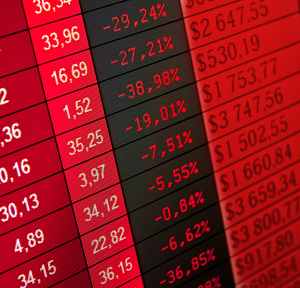Banking Crisis
EXCLUSIVE GUEST ARTICLE: Market Risk Takes Centre Stage In 2015 - Temaswiss

2014 has barely begun and already market risk is front and centre as an issue. Here, Temaswiss, the Singapore-based organisation working in areas such as wealth management training, ponders the challenges.
The following article is by Ranjan Chakravarty, chief executive of Temaswiss, an organisation headquartered in Singapore that describes itself as “Asia’s bespoke domain expertise training, impactful advisory and data sciences think-tank organisation”. (To see an article about the organisation, click here.) In this commentary, the CEO considers how market risk will be uppermost on investors’ minds this year. It has been a volatile start to the year: falling oil prices, a huge rise in the Swiss franc’s exchange rate and, most recently, concerns about the very future of the euro in the light of the Greek national elections at the weekend. Market risks are very high on the agenda at present.
The views expressed here are those of the author and his organisation. The editors here are grateful for the article and invite readers to respond.
The events of the last few weeks mark a turning point in world markets that have profound significance for the conduct of financial services, especially within the asset management industry. Most significantly, we see that the market risk quadrumvirate of energy-foreign exchange-money markets-equity has heralded its return to centre stage.
Beginning with energy, the oil price shock needs to be understood in terms of its ripple effect across portfolios that have traditionally been oil futures, which are a vast number, and have been caught off guard. The economic discourse now has moved to understanding oil supply and demand from demand alone, and speculation has moved away from discussion of a pricing rebound to just how low oil will go.
These have profound implications as the long-term long positions are facing severe mark to market impairment, and yet it is too early for moving to long-term shorts in oil futures. Hence, we should see renewed reallocation to short-term trading portfolios, which would induce a large amount of volatility into the market, calling for extensive reworking around market risk controls in this asset class.
In foreign exchange, the Swiss franc event has caused major consternation in the markets, as a major currency volte face leading to huge draw-downs takes us almost back to the pre-euro days of large foreign exchange swings in bellwether currencies. It is events such as these that make market risk managers nervous, as few, if any, market risk policies are equipped to deal with a flock of “black swans”. A follow-up to this kind of shock is that vulnerable emerging market currencies will likely come to be more tightly controlled, as volatility flows from the majors to the minors, and not the other way around. In this context, the [Russian] rouble’s fall is an additional volatility inducer, but its effect is expected to be limited. Hence, we can expect renewed focus on the currencies most directly affected by the Swiss franc and the euro, all the way down the market pyramid.
Knee-jerk responses
In money markets, the perspective we can offer is that it is notable to observe that on the heels of forex shocks come knee jerk policy rate reactions, and the Swiss National Bank is no exception. The rate cut decision will reverberate in the Swiss money market, inducing volatility and, if the effects persist beyond the very immediate term, will induce capital flight into instruments in other global markets at the short to medium end of the yield curve.
This is another case of potential volatility export, which can again get magnified as it makes its way through the global fixed income markets. We do not expect that compensating rate hikes in the US and elsewhere will serve to cancel out this volatility and this will likely have a snowball effect across global fixed income portfolios - another challenge for market risk.
In equities, 2015 begins with many markets flush with volatility. Some emerging markets like India have powered to all-time highs without any significant progress in the underlying real economy. The orderly policy-coordinated equity sell-off in the China market of last week is extremely significant, in that a major developing economy has actually taken proactive steps to temper off volatility. The excess volatility that has accumulated in various equity markets, especially in emerging markets, will need to be managed down without hugely impacting prices and value, which will be the largest and most critical challenge for risk managers this year, all of it centred on market risk.
Pulling all of these together, we foresee the impact of market risk on capital in 2015 in perhaps the most significant manner since the 1990s. Though it may be too early for us to see a "re-re-working" of Basel III, we expect that market risk management will see a resurgence, with renewed focus on risk control, extensive reworking of limits, revamping of stress tests and scenario analyses to accommodate the new reality, all of which will dovetail into capital reassessment in quick time.